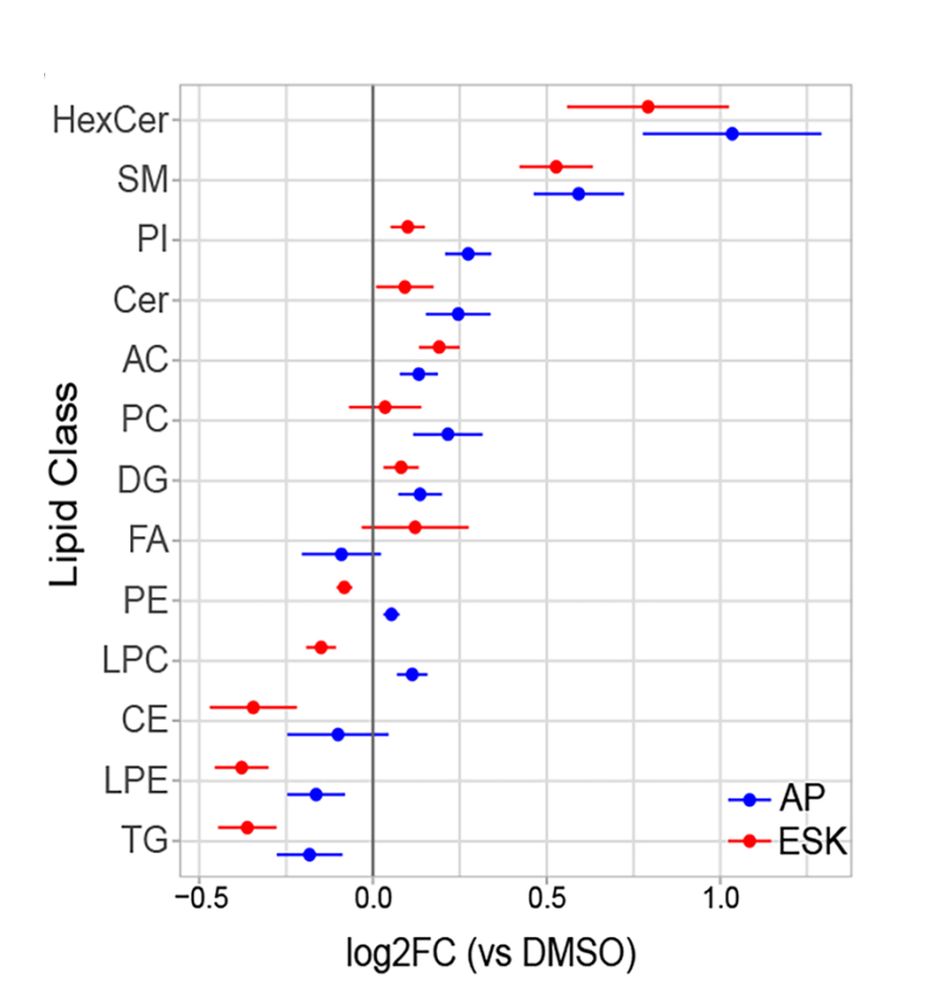Caleb Cheng
@djcalebc.bsky.social
38 followers
58 following
26 posts
✝️🇹🇼🇺🇸 MD/PhD student at the University of Michigan. Cellular and Molecular Biology candidate in Arul Chinnaiyan and Costas Lyssiotis laboratories
Posts
Media
Videos
Starter Packs
Reposted by Caleb Cheng
Reposted by Caleb Cheng
Barbara Marte
@barbmarte.bsky.social
· May 1

Targeting PIKfyve-driven lipid metabolism in pancreatic cancer - Nature
A study of human and mouse models of pancreatic cancer finds that inhibiting the lipid kinase PIKfyve interferes with the cancer’s lipid homeostasis, making it a potential target for drug development.
www.nature.com
Caleb Cheng
@djcalebc.bsky.social
· Apr 28
Nature
@nature.com
· Apr 28

Targeting PIKfyve-driven lipid metabolism in pancreatic cancer - Nature
A study of human and mouse models of pancreatic cancer finds that inhibiting the lipid kinase PIKfyve interferes with the cancer’s lipid homeostasis, making it a potential target for drug development.
go.nature.com
Caleb Cheng
@djcalebc.bsky.social
· Apr 26
Caleb Cheng
@djcalebc.bsky.social
· Apr 26
Caleb Cheng
@djcalebc.bsky.social
· Apr 26
Caleb Cheng
@djcalebc.bsky.social
· Apr 26
Caleb Cheng
@djcalebc.bsky.social
· Apr 26
Reposted by Caleb Cheng
Reposted by Caleb Cheng
Caleb Cheng
@djcalebc.bsky.social
· Apr 24
Caleb Cheng
@djcalebc.bsky.social
· Apr 24
Christian Frezza
@frezzalab.bsky.social
· Apr 23

Targeting PIKfyve-driven lipid metabolism in pancreatic cancer - Nature
A study of human and mouse models of pancreatic cancer finds that inhibiting the lipid kinase PIKfyve interferes with the cancer’s lipid homeostasis, making it a potential target for drug development.
www.nature.com
Caleb Cheng
@djcalebc.bsky.social
· Apr 24
Caleb Cheng
@djcalebc.bsky.social
· Apr 24
Concurrent Inhibition of the RAS-MAPK Pathway and PIKfyve Is a Therapeutic Strategy for Pancreatic Cancer
PIKfyve inhibition effectively blocks autophagy in multiple models of KRAS-mutant pancreatic cancer and can synergize with inhibitors of members of the RAS–MAPK pathway, providing an effective combina...
aacrjournals.org
Caleb Cheng
@djcalebc.bsky.social
· Apr 24

Targeting PIKfyve-driven lipid metabolism in pancreatic cancer - Nature
A study of human and mouse models of pancreatic cancer finds that inhibiting the lipid kinase PIKfyve interferes with the cancer’s lipid homeostasis, making it a potential target for drug development.
www.nature.com












